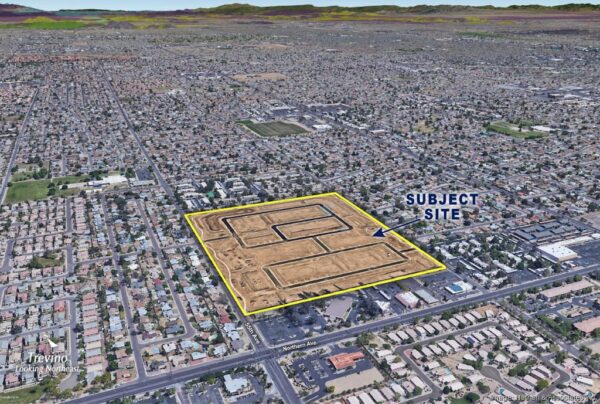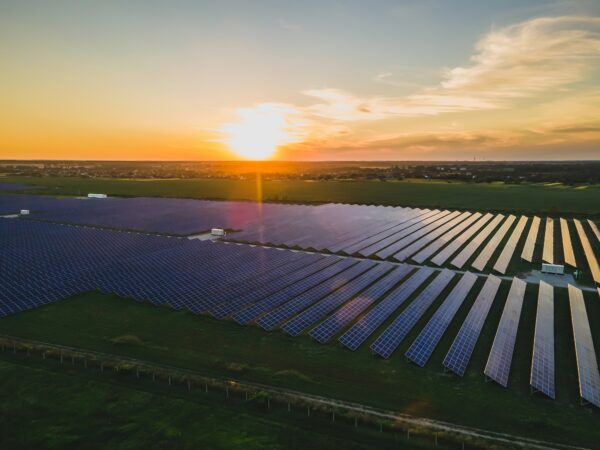
FOR IMMEDIATE RELEASE
March 16, 2020
The Monday Morning Quarterback ~ A quick analysis of important economic data released over the last week
“THE ONLY THING WE HAVE TO FEAR IS FEAR ITSELF.” ~ Franklin D. Roosevelt, 1933
Let’s put this into perspective. During this annual flu season, there have been 40 million cases of non-COVID-19 flu reported that have resulted in 40,000 deaths in the U.S. alone. Worldwide, there have been 400 million cases of non-COVID-19 flu that have resulted in 389,000 deaths. As of today, there have been more than 167,414 cases of COVID-19 reported worldwide resulting in more than 6,507 deaths while in the U.S. there have been more than 3,774 cases reported that have resulted in more than 69 deaths. In addition, the flu season peaks in February with December, February and March being the worst months for the spread of the flu. Cases fall dramatically in April and the flu usually goes dormant by May until November. Airborne flu viruses don’t usually do well in warm or hot weather.
So, why is this an issue? The answer is in the math and in the fact that COVID-19 appears to be far deadlier than other strains of flu. When something grows exponentially, the numbers are explosive. It took 20 days for COVID-19 to go from 100 cases to 1,000 cases but then only 15 days to go from 1,000 cases to 10,000 cases. So, it appears that if this were to go unchecked, the number of cases would increase by a factor of 10 every 16 days or so. If left unchecked, in less than 8 weeks there would be over a 100,000,000 cases. Such a large number would simply overwhelm the health system. Obviously, at some point these numbers slow simply because so many people would already be infected. But, the reality is that the number of new cases each day is a function of the number of existing cases, the average number of people that are exposed to someone who is infected on any given day, and the probability of an exposed person becoming infected.
That is why what is going on now is so important. By having less contact with other people, the number of people who get infected will go down. In addition, by simple washing your hands properly and often, keeping your hands away from your face (easier said than done) and disinfecting surfaces, you can reduce the probability of an exposure becoming an infection. As an example, if the infection rate is reduced from 15% growth per day to 5%, at the end of 8 weeks, the number of infections would be 400,000 instead of 105,000,000. Wow!! So, whatever it takes to get through the next 6-8 weeks is worth it both medically and economically. (For a very thorough explanation of this please go to http://youtu.be/KasOtlxDvrg. Special thanks to Craig Krumwiede for sending this to me.)
It’s also why the government’s actions are so important (although the stock market is signaling it is not enough). The government is trying to deal with an exposure issue that is so difficult to do in a democracy. It is trying to help people understand the risks and get them to wash their hands and stay sequestered at the first sign that they have been exposed or have symptoms. It is trying hard to mitigate the damages both physically and economically. But, by doing all of this, it inevitably creates fear. It is that fear that people are reacting to. Fear of the worst case. Once that happens, people look at the worst case for themselves physically, economically and politically.
Right now, it seems that it’s not just the virus but the fear of the impact that the virus will have that is causing what is bordering on mass hysteria. The unprecedented fluctuations in the stock market and the run on water, toilet paper, and now just whatever is on the grocery store shelves are proof of that. People have gone from thinking everything is positive regardless of whether it is or not to thinking everything is bleak regardless of whether it is or not. How fast that mindset changes when the virus is brought under control remains to be seen and will help determine the rapidity of the economic recovery. But right now, all people can see is uncertainty as to the virus and the economy.
How bad will things will things get? Is there no end in sight? Will things continue to collapse? The answers are unknown at this point. So, let’s look at the facts and try to determine where on the spectrum we stand.
Here’s what we know. People will have to cut back severely on travel of all types. So, airlines, cruise lines, car rental companies, hotels, restaurants, movie theaters, entertainment (concerts, sporting events, street fairs, conventions, etc.) are severely impacted for the next few months at least. This will have significant ripple effects. The Uber driver, restaurant staff, caterers, housekeepers at hotels, flight attendants, Starbucks baristas, retail workers, service workers, airports, travel agents, and so on will all have extreme difficulties. Any businesses that involve crowds of any size and the businesses and people who serve those businesses have seen and will continue to see huge declines in activity. And all of these things will also have ripple effects. So, the damage worsens. Indeed, if we are to have an airline industry when this ends and if many mom and pop restaurants and hotels are to survive, it will take a good deal of government assistance. Airlines, cruise lines and hotels are known for high levels of fixed costs. So, once you get below a level of utilization that allows breakeven, viability is threatened. And all of this assumes the healthcare system does not collapse.
There’s also the supply chain issue. I have yet to see a good analysis of what plants in China and elsewhere have been closed and what goods they produce. The good news is that the products at the docks or on the seas when this started kept the supply chain full for a while. The bad news is that inventory is probably about to run out and we can’t be sure what will be affected (although it’s probably not water or toilet paper).
There is also another issue, the wealth effect. When the stock market is going strong, people tend to spend more because they feel richer. When the stock market tanks, people tend to spend less because they feel poorer. This is especially true for baby boomers who have retired or are approaching retirement. Thus, a stock market recovery will be at least a piece of what is necessary to the speed of the economic recovery when it starts later this year.
The reality is that no one seems to know with great certainty how severe the short term economic impact will be. I’ve seen guesses (that’s all they are at this point) that range from a decrease of a few tenths of one percent to 5 percent in real GDP loss. I’m also not sure it really matters because there are certainly realities that suggest whatever it is, it will be short term.
First, this is an election year and both parties will want to go out of their way make sure that people suffer limited economic damage from the fight against the virus. This is what the package that just passed the House shows. Assistance includes free testing, expanding unemployment benefits, paid sick leave, and other things designed as a safety net. This will have to be expanded. It goes out of its way to keep cash flowing to people during a time when they otherwise would have faced difficulty. It will probably be followed up by legislation that will take care of any group that was inadvertently missed.
Second, the economy going into the “quarantine period” was extremely strong. Jobs were plentiful. Wages in real terms were growing. Confidence was high. Savings rates were high. We are now in a period where people will be forced to cut back on spending. This is not 2008. A recession (if it occurs) would not be caused by imbalances in the economy. This is a Black Swan that will be temporary, although the extent of the damage is far from known.
Third, it appears that the government will use the stock market as a gauge of what the public thinks of what it is doing. Thus, they will likely continue to add benefits and increasingly restrain contact between individuals until the market likes their plan. Will the market go back to all-time highs? Unlikely. But the reality is I don’t know. It should certainly recover part of the way. The problem is that the euphoria that surrounded the market going to new highs is broken. As the election approaches and people see that a candidate of one of the major parties favors much higher corporate taxes and higher taxes on individuals as well as more regulation, it will now be discounted into stock prices. But, the free fall will continue until there is some certainty regarding the effects of the virus.
Fourth, the Fed will do everything in its power (limited as it might be) to keep the economy going. So, not only will rates stay low, but, there will be lots of liquidity. This will be a pattern reflected by most of the central backs in the industrialized world.
Thus, the outlook is good once we get to a point where the number of new cases is under control, the supply chain gets close to normal, and the forced cut back on spending ends. The problem is no one knows when this will be and what damage will have been inflicted by that time. When this ends, probably by this summer, people will find themselves with extra cash that has accumulated because they didn’t eat out, go to concerts, take trips, go to stores to shop or buy things they might otherwise have purchased but weren’t available due to gaps in the supply chain. This means pent up demand. Because of this, the economy is likely to return to a level of pre-COVID-19 strength relatively quickly. This assumes that people become more and more sequestered over the next month. So, the short term weakness in 2020 will end up resulting in a stronger 2021 and 2022. There’s enough to worry about now. Post COVID-19 economic strength should not one of them.
So, will there be a recession because of this? Probably. But, it doesn’t matter. As I said a moment a go, this is not 2008. The underlying dynamics are strong. This is not due to imbalances in the economy that need correction. It is not due to the Fed trying to slow an overheated economy. It is due to a Black Swan, non-economic event. Hopefully, it will pass quickly but there is lots of uncertainty.
Will Arizona be affected? Absolutely. It already has been. The cancellation of spring training is a prime example. It is probably the single most important driver of winter tourism in the Valley. The good news is that at least we got in half the season and things would have slowed quickly thereafter as hot weather approached. The bad news is that the Valley and the state are dependent on tourism. It will hurt. The rest of the bad news is that those games and that part of the tourist season are not postponed, they have simply vanished. I expect traffic at Sky Harbor to be down substantially. The good news is that it is likely to be temporary. In fact, attendance at Cactus League games was up before the cancellation of the rest of Spring Training. The state in general and the Valley in particular will remain strong tourist markets. We don’t know how quickly mindsets will change back to where they were prior to the virus, but, assuming there is a vaccine by next year, it should be a good tourist season.
As for other effects, it is too early to determine and we have to see how the government’s economic rescue plan works. Another concern is if this event will change people’s propensity to move from one area of the country to another. That propensity is presently much lower than it had been prior to 2007. That hurt the state more than the housing bubble. Given the current low level of movement nationally and the high level of the states capture rate of those who do move, it should not be a major issue. The bottom line is that Arizona will be affected. By how much is still unknown. But, as with the national economy, any slowdown should be short term in nature.
As for the national data, we have to break it down into B.C. and A.D. that’s Before Coronavirus and After Diagnosis. The B.C. data really doesn’t tell us much other than that which we already knew. Things looked good B.C. In fact, the only data worth discussing is that for the week of March 7, initial claims for unemployment insurance actually fell from 215,000 to 211,000. So, prior to last week, the Coronavirus scare in the U.S. had little effect on jobs. I would expect that to change when the new data comes out this week.
As for Arizona, the latest employment data (also B.C.) indicated that the state, but, especially Greater Phoenix, continued to grow lots of jobs. Non-farm employment for January was up 2.7% over last year. That’s a gain of 78,600 jobs. In Greater Phoenix, employment was up 3.2% year over year or 67,800 jobs. So, the Valley created 86.2% of all the jobs created in the state over that period. All sectors grew. In Greater Tucson, jobs were up 1.3% from a year ago or 5,000 jobs. Because of the time delays in getting data, it will be May before we have meaningful data on the employment impact of what’s going on.
About EDPCo:
Elliott D. Pollack & Company (EDPCo) offers a broad range of economic and real estate consulting services backed by one of the most comprehensive databases found in the nation. This information makes it possible for the firm to conduct economic forecasting, develop economic impact studies and prepare demographic analyses and forecasts. Econometric modeling and economic development analysis and planning are also part of our capabilities. EDPCo staff includes professionals with backgrounds in economics, urban planning, financial analysis, real estate development and government. These professionals serve a broad client base of both public and private sector entities that range from school districts and utility companies to law firms and real estate developers.
For more information, contact –
Elliott D. Pollack &
company
7505 East Sixth Avenue,
Suite 100
Scottsdale, Arizona
85251
480-423-9200











